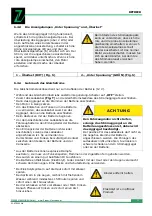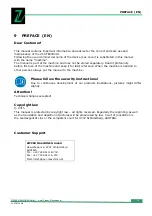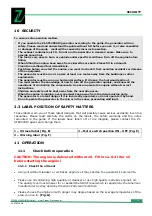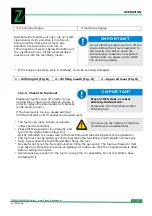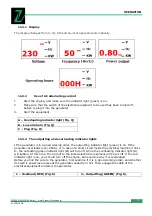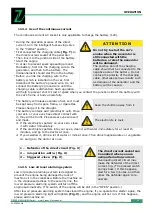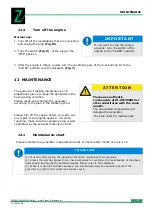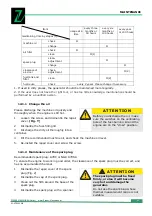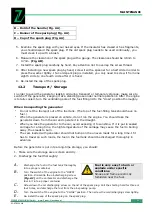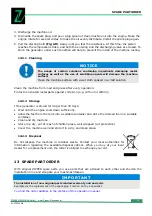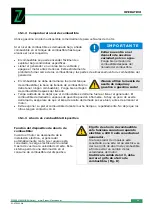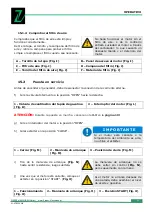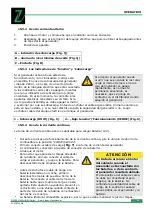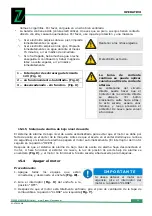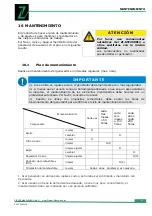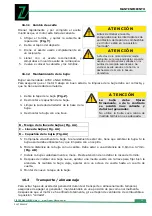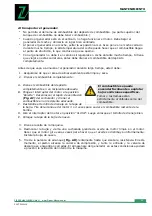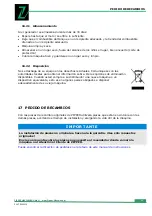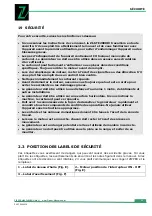
MAINTENANCE
ZIPPER MASCHINEN GmbH www.Zipper-Maschinen.at
41
ZI-STE2000IV
B – Hold of the handle (Fig. AA)
C – Banner of the spark plug (Fig. AA)
D – Cap of the spark plug (Fig. AA)
5.
Examine the spark plug with your naked eyes. If the insulator has crazed or has fragments,
you should discard the spark plug. If the old spark plug needs to be used continually, you
must clean it up with a brush.
6.
Measure the clearance of the spark plug with a gauge. The clearance should be 0.6nm to
0.7nm.
(Fig. AB)
7.
Install the spark plug carefully by hand. Pay attention not to overlap the screw thread.
8.
After installing a new spark plug by hand, screw it with a spanner for a half circle in order to
press the washer tightly. If an old spark plug is installed, you only need to screw it from one
eighth circle to one fourth circle after it is fixed.
9.
Re-install the cap of the spark plug.
12.2
Transport / Storage
In order to avoid the generator leaking oil during transport or temporary storage, make sure to
switch off the generator, keeping it at a standing pose under normal operations. After the engine
is totally cooled, turn the ventilating pole of the fuel-filling lid to the “close” position thoroughly.
When transporting the generator:
Do not let the fuel spill out of the fuel tank. (The top of the fuel-filling tank should have no
fuel.)
When the generator is placed on vehicle, do not run the engine. You should take the
generator down from the car and operate it in the draught.
When you take the generator to the car, avoid exposing it to sunshine. If it is put in sealed
carriage for a long time, the high temperature of the carriage may cause the fuel to boiling
away, thus leads to burn.
The cars loaded with generator should not bump on the uneven roads for a long time. If it
has to travel on such roads, the fuel in the fuel tank should be discharged thoroughly in
advance.
Before the generator is put into a long-time storage, you should:
1.
Make sure the storage area is clean and dry.
2.
Discharge the fuel thoroughly:
A.
Discharge the fuel in the fuel tank thoroughly
into a proper container
B.
Turn the switch of the engine to the “OPEN”
position. Dismantle the oil-discharging screw
(Fig. AC)
on the carburetor and discharge the
fuel in it into a proper container.
C.
Screw down the oil-discharging screw on the lid of the spark plug. Pull the starting hold for three or
four times, and discharge the fuel from the oil-spouting pump.
D.
Turn the switch of the engine to the “CLOSE” position. Then screw the oil-discharging screw tightly.
E.
Re-install the cap of the spark plug on the spark plug.
Fuel is very easy to burn or
explode under specific
conditions.
Smoke and flame are strictly
forbidden near the fuel.

